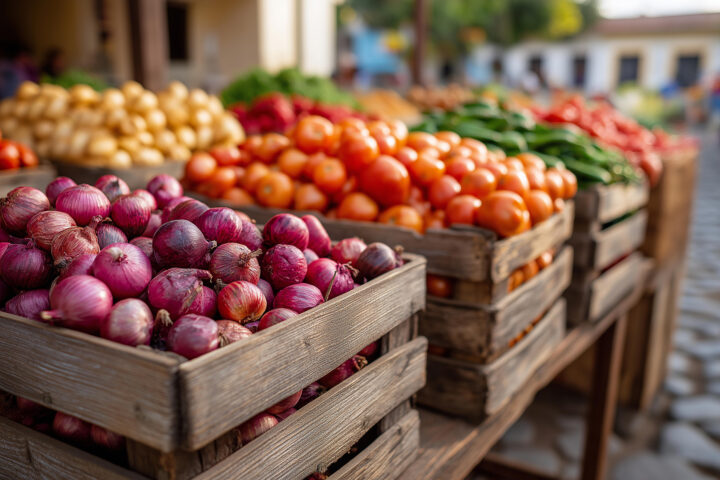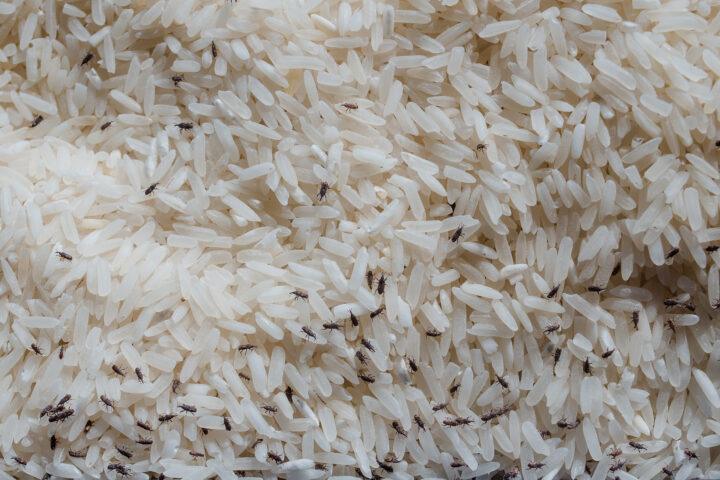
Because plants need protection from pests and diseases
The health of our crops cannot be taken for granted. On the contrary: in our mobile world, pests and plant diseases spread like wildfire. Climate change acts as an accelerant. When pests migrate and new plant diseases establish themselves in our latitudes, they can become a threat to native species. The International Plant Health Day on 12 May is a reminder of this. And the day shows: to ensure plant health in the future, research and innovation are needed above all.
Friday, May 12, 2023
According to the FAO, 80 per cent of our food is made up of plants. And they produce 98 per cent of the oxygen we breathe. But plants are exposed to various risks, some of which are increasing due to climate change. Particular attention is being paid to invasive pests and neophytes - plants that spread into new areas. There they often have no natural competitors and can therefore spread at high speed. In the process, they drive out native species and disrupt the well-established ecosystem. The United Nations International Day of Plant Health is a reminder of this.
Cherry vinegar fly: a threat to fruit and wine
One example of an invasive pest in Switzerland is the cherry vinegar fly. In recent years, the cherry vinegar fly has caused major yield losses for many farmers. Originally from East Asia, the pest was first discovered in Switzerland in 2011. It reproduced so strongly, especially in the wet summer of 2014, that it caused great damage to berries and cherries. Many winegrowers also fought the invaders, which are dangerous for vines, with insecticides that were even sold out at times in order to prevent major harvest losses. Due to these extreme experiences in 2014, the federal government set up a "Drosophila suzukii task force". As the "NZZ" writes, the task force has already achieved initial successes in the fight against the pest.
Progress in research
The researchers are using new plant protection products as well as other methods. In addition to the preparation kaolin, which is also approved for organic viticulture, for example, net barriers are being tested to keep the flies away from the vines. For the traditional high trunk trees, on the other hand, other solutions have to be found; nets cannot be applied economically. Attraction traps or the promotion of counterparts of the pest are among the promising strategies, as is the use of so-called parasitoids. One example is parasitic wasps, which lay their eggs in the larvae or pupae of the fly and thus prevent it from spreading. Within a very short time, research has developed strategies to take away some of the horror of the cherry vinegar fly. This example shows how important market-oriented research is.
Stink bug causes huge damage in fruit growing
The marmorated tree bug (stink bug) is another example of an invasive insect pest. It was introduced from China about 20 years ago and has since multiplied massively. So far, pear crops have often been affected. Damage has also been found on cherries and apples. In vegetable production, cucumbers and chillies are particularly at risk. The damage is caused by the sucking activity of the larvae and the adult bugs. In the early stages of fruit development, the sucking damage leads, among other things, to deformations, discolouration and sunken spots on fruits and vegetables as well as to growth delays. The fruits become unsaleable. A few years ago, the stink bug destroyed up to 25 percent of the pear harvest in the canton of Thurgau, and it continues to spread.
Samurai wasp as an adversary
There are still no reliable control methods against the marmorated tree bug that are approved in Switzerland. One possibility is the use of natural antagonists. The samurai wasp, which also comes from Asia, parasitises the eggs of the stink bug and can slow down its reproduction. Research into its effectiveness is ongoing. In the long term, however, a combination of additional measures is certainly needed, such as netting fruit trees or the targeted use of plant protection products.
New breeding technologies are needed
In addition to research on pest control, new and more robust plant varieties are also needed. Plant varieties that are better able to withstand the changed conditions caused by climate change than previous ones. In order to keep up with the pace of climate change and to be able to breed new plant varieties within a reasonable period of time, new breeding technologies such as genome editing are needed. Its advantage over conventional breeding methods is its precision. Gene segments can be edited with pinpoint accuracy, which greatly speeds up the process of backcrossing with old varieties, which takes years. This gives farmers valuable time in adapting to the climate and in the fight against invasive species. swiss-food has listed ten applications of genome editing that Swiss farmers could soon be using to ensure the health of their crops.
Kindly note:
We, a non-native editorial team value clear and faultless communication. At times we have to prioritize speed over perfection, utilizing tools, that are still learning.
We are deepL sorry for any observed stylistic or spelling errors.
Related articles

Why cutting out synthetic pesticides will reduce food production
The UK’s action plan to reduce pesticide use could backfire, warns agronomist Greg Dawson: overly strict regulations may make domestic farming unprofitable – and increase the United Kingdom’s dependence on imports.

Approval studies for plant protection products are science-based
The approval of plant protection products in Switzerland is subject to strict legal requirements. Ultimately, this approval process is based on scientifically sound studies. These studies are financed by manufacturers, but they must comply with clearly defined governmental requirements and controls. The aim is to ensure reliability and independence.

Grain beetle eats its way through Swiss grain stores
The grain beetle is spreading in Swiss grain stores. Introduced via international trade, it threatens harvests and impairs food quality.

New problem: soft bugs, native pests discover fruit and vegetables
Soft bugs are spreading at lightning speed in fields and greenhouses in southern Germany. These pests are destroying fruit and vegetables and pushing agriculture to its limits. Effective plant protection products must be found urgently to safeguard harvests.

